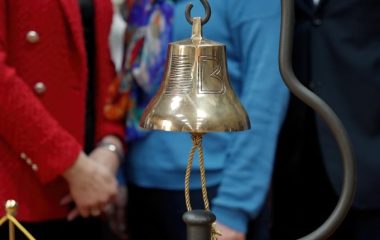
Photo: iStock
The cooperation of the governments in Sofia and Athens in the energy field continues with the announcement that the IGB gas pipeline would be finished soon, allowing Bulgaria access to Azerbaijani gas and a liquefied natural gas terminal in Alexandroupolis. The two countries indicated they would work together in the nuclear energy sector as well, as Bulgaria plans to build another reactor.
Interconnector Greece-Bulgaria (IGB) will be completed by the end of June, and scheduled to start operating as early as September, Bulgarian Prime Minister Kiril Petkov announced.
The projected annual capacity of the IGB gas pipeline is up to 3 billion cubic meters. It can be increased to as much as 5 billion cubic meters per year, depending on market interest and the capacity of neighboring gas transmission networks.
The interconnector is worth EUR 220 million. It will connect the Greek gas transmission network in the Komotini area with Bulgaria near the southern city of Stara Zagora. A joint venture of Bulgarian state energy company BEH, Greek gas company DEPA and Italy’s Edison is building the 180-kilometer long pipeline.
Alternatives to Russian gas
Bulgaria imports between 70% and 90% of the gas and 60% of the oil it consumes from Russia. But officials in Sofia are considering importing Azerbaijani gas through Greece once the IGB is operational. Bulgaria made a deal to receive 1 billion cubic meters of natural gas from Azerbaijan. Additional quantities of LNG will come from the gas terminal in Alexandroupolis, in which Bulgaria has a stake.
Officials in Sofia are considering importing Azerbaijani gas via Greece once IGB is operational
Petkov recently said Bulgaria would seek an exemption from imposing an embargo on Russia’s state-owned gas company Gazprom if the European Union decides to do so.
“It’s not just us. Many European countries are taking tough measures against Russia, and even countries like Germany or Austria cannot completely rule out Russian gas, on which they are highly dependent. This is a simple truth. We are more than 80% dependent on Russian energy. In essence, we would be shutting down our economy,” Petkov said in an interview with the Greek daily Kathimerini.
The contract between Bulgaria and Gazprom expires at the end of the year. Russia threatened it would switch payments for gas to rubles.
Petkov: It is essential that we further diversify our sources of energy
“It is essential that we further diversify our sources of energy. We are working very closely with the Greek prime minister on this, to strengthen the energy interconnection of our countries, through the Interconnector Greece-Bulgaria (IGB) pipeline, as well as in liquefied natural gas reserves in Alexandroupolis. These are two options we are interested in moving on as fast as possible so that we have alternatives, ” the Bulgarian prime minister said.
Announcement of cooperation in the field of nuclear energy
Bulgaria currently has two nuclear reactors in Kozloduy, producing about one-third of the country’s electricity. Officials in Athens and Sofia are also discussing prospects for a bilateral agreement on deliveries of nuclear power from Bulgaria to Greece.
“You need cheaper electricity. We have nuclear energy, and you don’t. By combining these two things, we can work together as good neighbours and build long-term relationships by constructing a mutually beneficial nuclear power plant as a vital alternative to address the energy deficit in our region. We are considering potential suppliers and conducting a rapid study of the feasibility,” Petkov said, adding that he hopes that in 12 months his cabinet would have a clear picture about it and that a concrete proposal would follow.
The Greek government favors long-term agreements
Greek Prime Minister Kyriakos Mitsotakis said the country has no plans to build nuclear facilities because of the risk of earthquakes in the region.
Greece already imports electricity from Bulgaria, part of which comes from the Kozloduy nuclear power plant
The Greek government aims to conclude long-term bilateral contracts with Bulgaria that would ensure a stable supply of energy at very low prices and contribute to the competitiveness of the country’s economy.
Mitsotakis and his cabinet intend to build a second floating LNG terminal in Alexandroupolis and upgrade submarine gas storage facilities in Kavala, EurActiv reports. Greece already imports electricity from Bulgaria, part of which comes from the Kozloduy nuclear power plant.
Announcement of construction of a new reactor
Bulgaria also plans to speed up the construction of a planned nuclear reactor, most likely at the Kozloduy plant. As Deputy Prime Minister Asen Vassilev recently announced, if the project starts this year, the reactor could be completed between 2028 and 2030.
“The Ministry of Energy has started a study for the rapid construction of another nuclear reactor, most likely in Kozloduy because this is a ready-made site with an environmental assessment and a working team,” Vassilev said.
According to him, the new nuclear reactor would have four units. He explained there are already two new unused Russian nuclear reactors in Bulgaria, according to EurActiv. The report adds it is not clear whether Bulgaria could use them in the new plant, because that would imply the cooperation with Russian corporation Rosatom and its participation in the project.


















Be the first one to comment on this article.